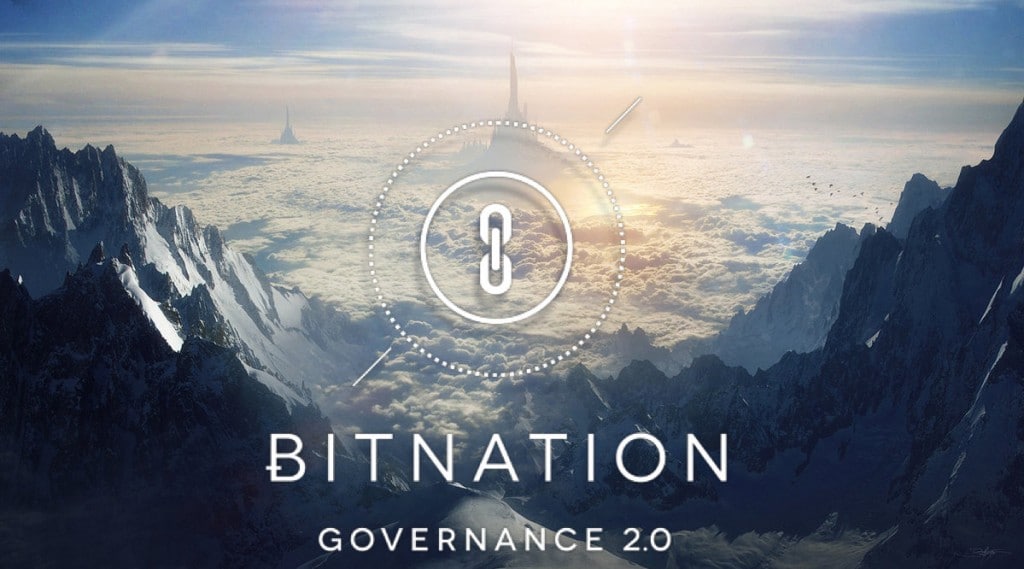Blockchain technology is a real thing. But what is it?
A blockchain is a public ledger of all Bitcoin transactions that have ever been executed. It is constantly growing as ‘completed’ blocks are added to it with a new set of recordings. The blocks are added to the blockchain in a linear, chronological order. Each node (computer connected to the Bitcoin network using a client that performs the task of validating and relaying transactions) gets a copy of the blockchain, which gets downloaded automatically upon joining the Bitcoin network. The blockchain has complete information about the addresses and their balances right from the genesis block to the most recently completed block.
This nifty infographic from We Are Europe wants to help us get back to basics.

Got it?
Distributed consensus technology works by sharing a digital chain of interactions – each one a data fingerprint which works with everyone else’s to confirm and back up the others. One of the biggest attractions of the blockchain is that it offers a true and verifiable record of every online interaction ever made. Individuals, corporations and banks themselves would arguably never be able to default.
So, how can it save everything? Bitcoin hasn’t lived up to the salvation rhetoric, but the digital engine behind the currency may be about to impact people around the world currently excluded from mainstream financial systems. A distributed ledger or smart-contract uses the blockchain as payment protection, a remittance system and even a bank account, offering the hope of an alternative financial scheme and more financial inclusion to billions of ‘unbanked’ people around the world.

A recreation of the engineer Paul Baran’s diagram published in ‘On Distributed Communications’ in 1964
“There is some hope that Bitcoin’s underlying blockchain technology… might actually help developing economies,” says Scott for USRISD. “Imagine a coded blockchain-based script that is activated when two parties send bitcoins to an escrow Bitcoin account that is controlled by the script, and which will release the bitcoins in the future to whoever wins a bet on the average level of rainfall over a certain period. This smart-contract is programmed to read data from weather agencies, and after a set amount of time releases the bitcoins from the escrow, sending it to a farmer who requires protection against low rainfall. This is a blockchain-based weather derivatives contract.”
The blockchain also means it’s possible to receive a digital identity nationally and internationally. Bitnation has set up a system which uses blockchain to help solve the refugee identity crisis in Europe, helping Syrians get emergency identity documents in order to cryptographically prove individual identity and family relationships.

Bitcoin works like a regular Visa debit card, the only difference being that it’s charged by Bitcoin, which doesn’t need a bank account to set up
Onename allows people to set up their username and embed data directly into the blockchain to help individuals who want to voluntarily identify themselves. This means those typically excluded from the financial system have a way to potentially open their own bank account, send money across borders and apply for loans. Users can voluntarily identify themselves via the blockchain, and can be granted access to health care, social services and job opportunities.
In his paper, Scott also challenges the idea that blockchain technology will have only positive effects: “The deep question is how to get people who may be used to existing systems of institutionalised trust to start using another one,” he said. “How does a blockchain system gain legitimacy and stability, such that users will adopt it and grow to trust the safety of their position within it?” Blockchain has been lauded as the most innovative and radical invention since the internet itself. How the technology will take shape, for what purpose and at whose gain, is for now unknown.
The Bitnation Bitcoin Visa Debit Cards (BVDC) means refugees can withdraw money from ATMs, shop in regular stores and buy things online. It works like a regular Visa debit card but doesn’t require a bank account to set up. By donating 12€ you will provide one refugee with a Bitnation Bitcoin Visa Debit Card (BVDC).

